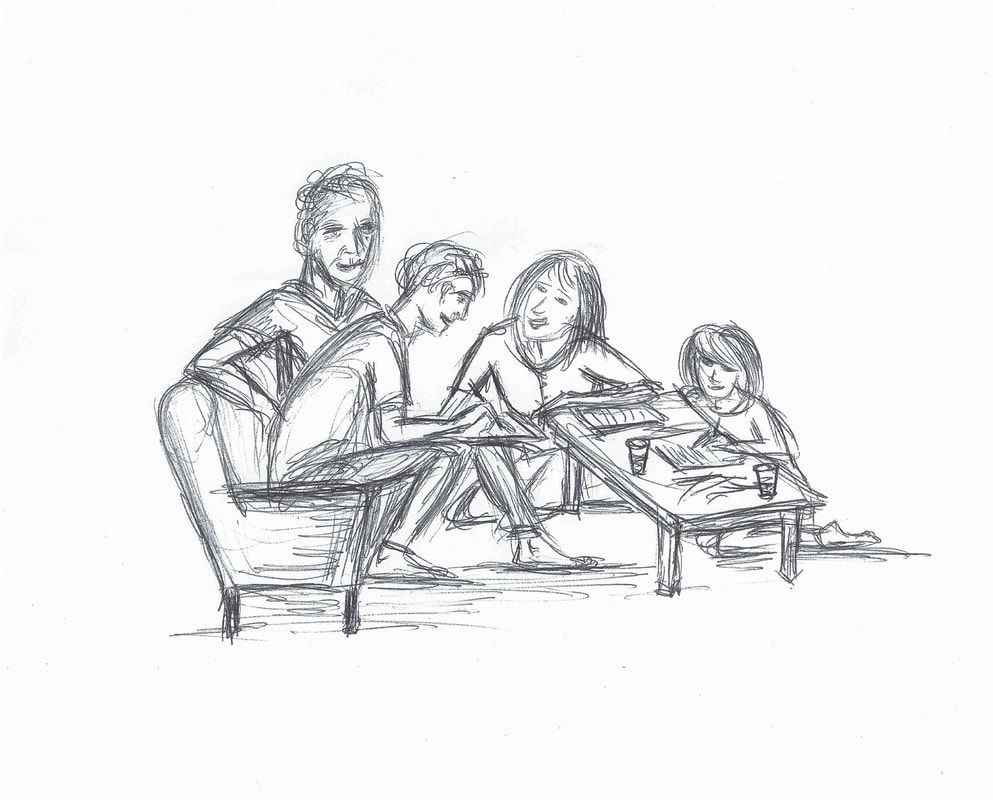One Family's Experience
|
When I heard that this book had "40 deep conversations to have with your family", I was instantly curious. So that night, at the dinner table, I asked the younger generation to choose a conversation from the list. My niece chose the conversation "How I like to be treated". The conversation that followed took us to unexpected places.
It started with us taking turns, identifying how we want to be treated. One family-member offered "I want people to treat me with respect." So we looked at what "respect" looks like. This opened up a conversation about having regard for people's feelings, and having understanding for the often-complex behaviours that we encounter in other people at school, at sport, or at work. Another family-member said "When I make a mistake, I want to be forgiven for it; not begrudged." This opened up a conversation about profound experiences that have occurred from being forgiven. I shared a story of one of my old dear friends forgiving me, when I made a big mistake. Our whole family appreciated my old friend for her forgiveness. Then we talked about the "Truth and Reconciliation Commission" of South Africa. We marvelled that Mandela's government did not imprison the old guard of apartheid. A quieter family-member offered that she would like to have privacy sometimes. This opened up an older conversation of trying to find a way, in our house, for her to have her own bedroom; and so we made progress thinking about a solution for that need/desire. Another, older, family-member offered that they would like to be treated with kindness. This opened up a conversation about that particular family-member's regular stubbornness; and we acknowledged that it is very challenging to be kind to someone when they are doing something like being stubborn. It was helpful to have this conversation about their stubbornness, in a non-firey setting. Interestingly, we all spoke with kindness and felt kind as we talked about his stubbornness in this setting. One family-member offered that they like people to be patient with them, when they don't understand something. What followed were examples of friends they particularly like, and who are popular, and who are all patient. As time was getting on, we started to clear the dinner table. I asked my eldest child what she thought about the conversation and about the offerings of the book. She said "That conversation could let a rather large cat out of the bag." I instinctively wanted to know about the cat, but I also knew it was off-limits, as, during the conversation, she hadn't actually let the cat out of the bag. Later I wondered which behaviours of mine could be cats in that bag. It could be my parental impatience. It could be my parental yelling. I decided there was space for me to do some repair in my relationship with her: be more patient, restrain from volcanic yelling. I have been conscious of, and implemented, those two things. Whether I meet the cat, or not, I do feel a degree more of harmony, and a degree more of a "good-enough parent". The conversation enabled a change to occur. I'm looking forward to doing another conversation with the family. |

